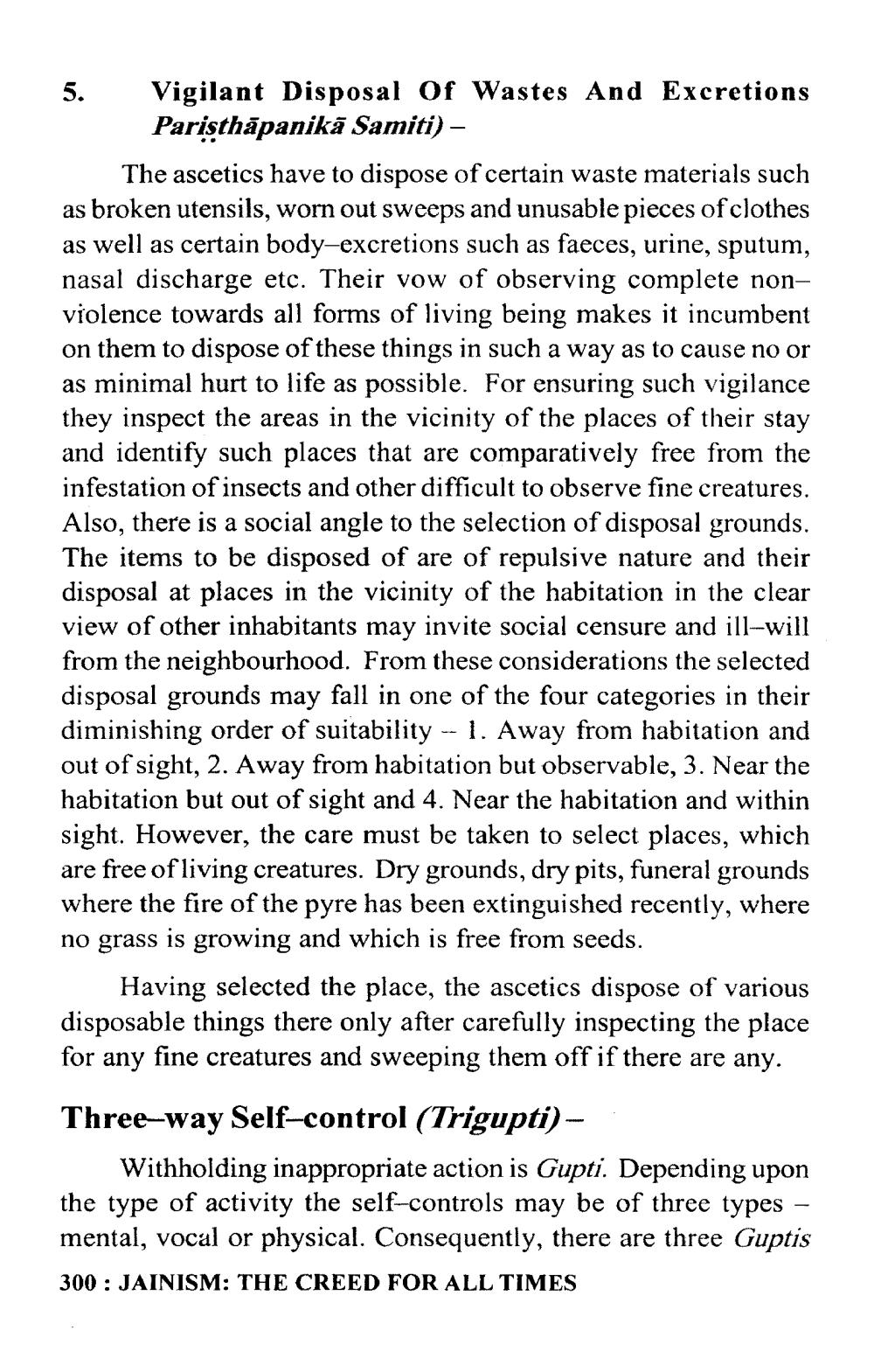________________
5. Vigilant Disposal Of Wastes And Excretions
Paristhāpanikā Samiti) -
The ascetics have to dispose of certain waste materials such as broken utensils, worn out sweeps and unusable pieces of clothes as well as certain body-excretions such as faeces, urine, sputum, nasal discharge etc. Their vow of observing complete nonviolence towards all forms of living being makes it incumbent on them to dispose of these things in such a way as to cause no or as minimal hurt to life as possible. For ensuring such vigilance they inspect the areas in the vicinity of the places of their stay and identify such places that are comparatively free from the infestation of insects and other difficult to observe fine creatures. Also, there is a social angle to the selection of disposal grounds. The items to be disposed of are of repulsive nature and their disposal at places in the vicinity of the habitation in the clear view of other inhabitants may invite social censure and ill-will from the neighbourhood. From these considerations the selected disposal grounds may fall in one of the four categories in their diminishing order of suitability - 1. Away from habitation and out of sight, 2. Away from habitation but observable, 3. Near the habitation but out of sight and 4. Near the habitation and within sight. However, the care must be taken to select places, which are free of living creatures. Dry grounds, dry pits, funeral grounds where the fire of the pyre has been extinguished recently, where no grass is growing and which is free from seeds.
Having selected the place, the ascetics dispose of various disposable things there only after carefully inspecting the place for any fine creatures and sweeping them off if there are any.
Three-way Self-control (Trigupti),
Withholding inappropriate action is Gupti. Depending upon the type of activity the self-controls may be of three types – mental, vocal or physical. Consequently, there are three Guptis 300 : JAINISM: THE CREED FOR ALL TIMES




